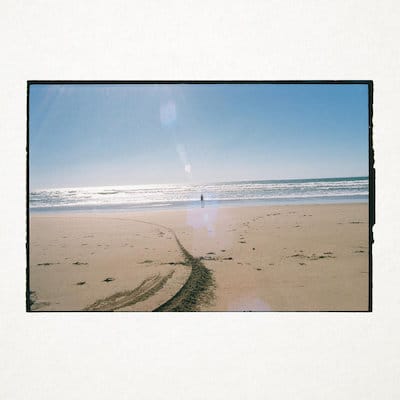
Michaela Anne
Oh To Be That Free
Yep Roc
2022
As with her 2019 Yep Roc debut, Desert Dove, Michaela Anne‘s follow-up, Oh To Be That Free, was co-produced with husband Aaron Shafer-Haiss and continues to see her musical horizons expanding beyond her early honky tonk settings, embracing more sophisticated and textured stylings while keeping country at the core.
The album was born of two major life events, her mother suffering a severe haemorrhagic stroke when Michaela was five months pregnant and then the subsequent birth of her daughter, causing her to be a carer on two generational fronts while also recovering from a period of self-sabotage following the rush of success of the previous album.
Co-penned with Madi Diaz and Kate York, the strummed album opener with its pizzicato strings I’m Only Human is a raw confessional as she sings, “I’m selfish and unstable, I’m emotional and wild and I’m hateful/I’m jaded when I’m losing, I never know what the hell I’m doing/I’m only human” with a sense of musical drama that carries hints of Roy Orbison.
Personal growth is a running theme, strongly evidenced in Trees, a steady-paced, piano-accompanied song of a metaphorical nature, a reminder that the album was also constructed during the pandemic, where she opens by singing, “I wonder if the trees ever feel uneasy when winter comes and they stand tall but bare/Do they fret and fray worried that the day won’t come when spring rivers and blossoms reach for air”, speaking to the need for community in “do they already know that their neighbors are their home tied together here on earth and cosmically/That individuals don’t ever carry on alone no matter how you try to run from your own need”.
Adding pedal and lap steel to the sound, the uptempo jog Chasing Days looks back on an unsettled childhood (“Daddy was a sailor moved us port to port/Mama did her best to make each home feel warm”), of sacrifices (“We watched her dreams fade with each setting sun living for us”) and of changing to suit the situation (“cause fitting is how I thought you knew they loved you”), the song a coming of age, of her “at the end of the road of being on the run” and realising “feeling whole and home shouldn’t be an endless race”.
It is appropriately followed by Who You Are, a strings-caressed lullabying shimmer which, when she sings, “It’s hard to look at you and not see my own face/How to love for love’s own sake and not for my own gain” it could be equally for her daughter or mother.
Co-written with her husband, the pedal steel-shaded title track as such, Oh To Be That Free Again, is another reflection on younger farm girl days (“barefoot running through the green pastures smiling at her mom and dad/Sun kissed skin, no t-shirt, grass stains covering her legs”) that carries with a sense of loss as the years pass and responsibilities accrue.
Good People is the album’s mid-point, a shimmery starry-sky ballad about damaged hearts and how sometimes good people hurt good people and that “forgiving you means forgiving me/And that’s the hardest thing to do”. Then, by way of a change in mood, Dirty Secrets is a raunchier track driven by Anthony da Costa’s electric guitars about putting on the face folk expect to see and how knowing your partner’s darker sides (“does the truth keep up awake at night while you’re lying beside her killing every promise on the bed she makes”) can be a leverage (“I won’t ever tell your dirty secrets/It’s enough to know that you know I know”), the portrait of a dysfunctional relationship spilling over into Does It Every Break Your Heart? (“I didn’t want to see you again/Apparently time is only weakening/Resisting my own curiosity to hear what you feel you need to say to me”) where the reconnected characters sit opposite one another, lost in their own voids (“You try to hold me gaze like you used to/But I can see you don’t see me you see only you”).
Anne on Wurlitzer, the Stevie Nicks-tinged If Only You Knew ponders what choices might be taken if the outcomes could be seen (“If only you knew what was in front of you/Would you do the things you wanted to/Would you contemplate the back and forth and how you’re always wanting more than what’s right in front of you”). Then, opening with a sustained synth note before piano, pedal and lap steel map the sonic constellation, Mountains And Mesas builds in power and drama, ebbs and flows, using the geographical highs and lows as metaphors for traversing a relationship landscape as she sings “It’s your love I know/As the only way out”.
It ends on the bittersweet introspective ruminations of the airy fingerpicked It’s Just A Feeling as she confesses, “Sometimes my mind plays tricks on me/convincing of such awful things/Like I’m alone, unlovable and lost”, a song about confronting depression and self-doubts “keeping me from what I could do”, but remembering that this too shall pass (“I try to remember I have been this place before/But like a fire I can fan the flames or choose to block the door”) and that, as it rises to an optimistic swell, however down you might get, “it’s just a feeling it’s not how you will always feel”. This is an album that sees the darkness but also feels its way to the light within.

